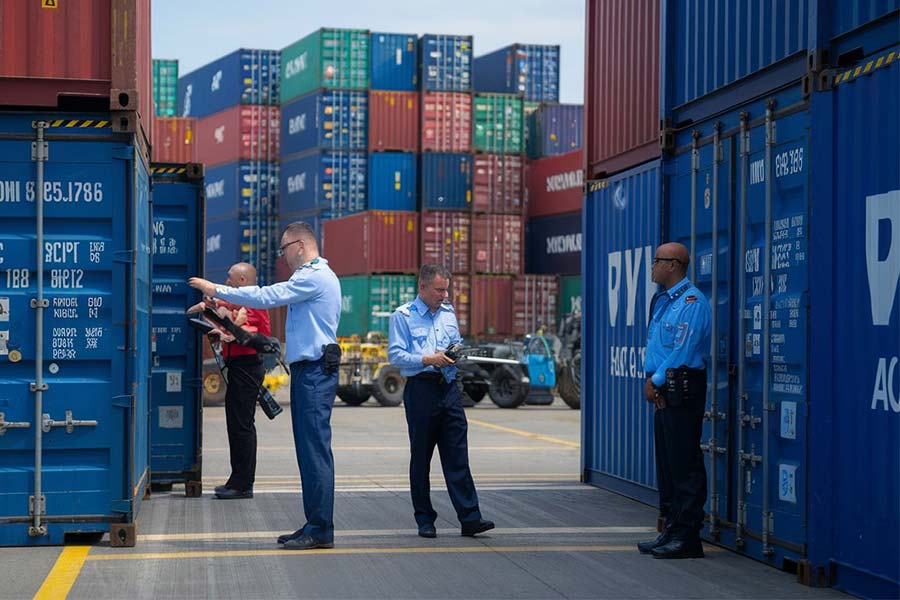
enteredExport agentWhat are the core components of fees?
According to the latest 2025 international trade service standards, formal agency companies typically structure fees into three main modules:
- Basic Service Costs
- customs clearanceDeclaration fee (including HS code classification)
- Document processing fee (commercial invoice/packing list/certificate of origin, etc.)
- Regulatory document agency fee (licenses/filing, etc.)
- logisticsAdditional fees
- Port operation fee (THC/document fee)
- Special cargo handling fee (dangerous goods/cold chain)
- Tariff advance service fee (0.5%-1.5% of advanced amount)
- Risk management fee
- Trade compliance review fee
- Exchange rate fluctuation buffer (optional)
- Legal consultation additional service
What are the new changes in agency fee calculation methods for 2025?
Affected by international trade digitalization upgrades, this years fee models show two major trends:
- Reduction in electronic declaration fees: The "Smart Customs Clearance" system implemented by the General Administration of Customs has led to a year-on-year decrease of 15-20% in electronic customs declaration fees.
- Tiered billing based on trade volume: Clients with annual import/export volumes exceeding $5 million can enjoy a service fee cap policy
- Carbon emission surcharge: EUThe carbon tariffs(CBAM) New carbon accounting fees for transportation links after implementation
How much difference exists in agency fees between sea/air/rail transportation?
Taking a standard 20-foot container from Shanghai to Hamburg as an example, there are significant cost differences among different transportation methods:
- Ocean freight forwarding fee: Approximately $800-$1200 (including port miscellaneous charges)
- Air freight forwarding fee: 2%-3% of cargo value (minimum charge $300 per shipment)
- China-Europe Railway Express forwarding fee: Fixed $650 + 0.8% of cargo value
Special attention should be paid to the newly addedTransportation Security Surcharge(SSF) in 2025, with rates varying from 0.05% to 0.2% across different transportation methods.
32. How to avoid hidden fee traps?
Based on our experience handling 300+ dispute cases, special attention should be paid to the following cost items:
- Demurrage fee conversion: Some forwarders transfer container detention fees caused by clients into service charges
- Exchange rate difference collection: Clearly agree on the benchmark date for foreign exchange settlement rates
- Expenses for Abnormal Situations: Inspection coordination fees should have pre-agreed upper limits
How to determine if an agency quotation is reasonable?
Recommended adoptionThree-dimensional price:
- Horizontal comparison: Obtain detailed quotations from at least 3 forwarders
- Vertical analysis: Compare cost fluctuations for similar businesses over the past three years
- Cost breakdown: Request third-party charging documents from customs/shipping companies
Compliant forwarders in 2025 must provideCost Composition Statement, specifying the policy basis and calculation method for each fee.
Will special business scenarios incur additional charges?
The following six situations usually incur additional charges:
- Temporary bill of lading information changes ($50-200 per occurrence)
- Emergency customs clearance during non-working hours (starting from 200% of base fee)
- Goods in special supervision zones (such as bonded warehouse entry/exit fees)
- Returned cargo processing
- Special categories like antiques/artworks
- Document authentication under letters of credit
How to reduce agency costs through process optimization?
Based on our experience in optimizing for multinational corporations like Walmart, we recommend:
- ImplementationQuarterly prepayment systemCan receive 5-8% discount
- UseBlockchain customs clearance systemReduce manual intervention links
- EstablishedStandardized document template libraryLower document review costs
- ParticipateAEO-certified enterpriseEnjoy customs fee reductions


 Follow Customer Service WeChat
Follow Customer Service WeChat